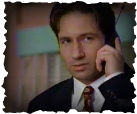Making Transitions

When you watch a television show, you might notice that one scene often flows smoothly into another. For instance, think of the old TV show The X-Files. Let's say one character, Scully, is in Washington, DC when she realizes she needs to talk to another character who is her FBI partner named Mulder. Scully might say, "I need to call Mulder." Then she will take out her cell phone and wait a few seconds. What we expect next is to see Mulder answer his phone. The cell phone was a transition element; it helped the writer go from one scene to another.
When we are writing essays transitions are also important because they let the reader know that the writer is going to give additional information. Look at the sample paragraphs below.
1. There are some interesting facts to know about the Vikings. First, in 1000 AD in Iceland, the Vikings allowed the Catholic church to exist peacefully within the country, after centuries of hostility. Next, the Vikings captured Sicily and years later gave ownership of the tiny country over to the Catholic church.
In this brief little paragraph we see two transition devices to signal additional information: first and next. This is an example of transitions at the sentence level. Now look at paragraphs (2) and (3) and you will see a transition at the paragraph level.
2. The night I stayed in the abandoned house the weather was horrible. The wind was blowing violently; thunder was blasting, and lightning was flashing across the ink-black sky. The weather by itself was enough to make me think twice about spending a night in the house on a dare, but there was something more sinister and frightening waiting for me.
3. As I lay on top of my sleeping bag on the floor of the dark living room, growling voices -- some of them child-like-- started to appear from within the walls of the room. At one point I was certain that someone--or something--was breathing on my face. My blood ran like ice, and my heart began to pound. I had to do something. Lying still was not an option. Then a great idea occurred to me.
3. As I lay on top of my sleeping bag on the floor of the dark living room, growling voices -- some of them child-like-- started to appear from within the walls of the room. At one point I was certain that someone--or something--was breathing on my face. My blood ran like ice, and my heart began to pound. I had to do something. Lying still was not an option. Then a great idea occurred to me.
Are you frightened? Good. Do you see how the independent clauses in bold type lead you to the next paragraph? When I write that something is waiting for me, your natural response is to want to know what it is. Thus, in the next paragraph I tell you: It is the voices. In the second paragraph I mention a great idea. If there were a third paragraph, I would tell you about that great idea.
Whenever you are writing, think of ways to lead the reader to the next idea, so that the transition is smooth. Imagine if you were blindfolded and I was leading you through a forest by holding your hand. If I turned left or right or jumped over a stream without telling you, you would be angry and confused. However, if I let you know that I am going to turn left or go down a hill, for instance, then you can prepare yourself. Readers like to be led; they know that a mark of a good writer is the lack of effort it takes to read what the writer has written.


